Some new homeschoolers worry about the whole "socialization" question. Us old-timers just tend to roll our eyes when that question comes along -- please, forgive us, but you'll be there, too, one day! ;-)
I say, if your kids are young, (11, 12, or less), relax. There will be plenty of time for friends later. My goal has always been for my children to be each other's best friends anyway -- and it *is* possible! ;-)
My oldest kids (due to financial constraints at the time and only one car) were not involved in anything outside of church and Awana for years. Didn't hurt them a bit. As a matter of fact, I think it's much better for them at that young age. Gives them more time to spend with me and each other, on their academics, having fun with board games, reading great books, playing outside, doing art projects, etc. -- less time to grow concerned with what other kids are wearing (expensive name-brands or immodest clothing), playing (X-box, etc.), or watching (TV, movies...) and more time to soak up our family's values and the Scriptural training we are giving them.
There are so many cheap or inexpensive things you can do. When my kids were very young, (7 and down), and we lived in a pretty "bad" neighborhood in upstate NY, (w/ lots of children home alone until late at night), I organized an afternoon "read-aloud time" for all the kids in the neighborhood. Usually about 20 kids came each day to gather on our covered front porch to hear me read from the "Little House" books. I passed out homemade cookies, and sometimes we sang songs afterwards, and then the kids rode bikes together as I watched for a short time. (I would *not* have left them unsupervised!) But those kids were desperate for attention, and my kids saw how blessed they were.
Some of the free or inexpensive things we have done over the years for both younger and older kids have been: homeschool choir, nature walks w/ the homeschool group, weekly Park Day and/or Sing-Alongs w/ homeschool group, organized field trips (to Civil War reenactments, the local ice cream store, the Shasta Dam or caverns, etc...), monthly homeschool skate days, community symphonic band and the youth orchestra, a teen writing club, a chess club, drama class/performances, Civil Air Patrol, Scottish dancing (only $5 a class), arts and crafts classes at the local Michaels store, B&N Story Hour (twice a week for various ages -- my then 3yo loved getting her picture taken with Clifford!), and so much more.
Really, the opportunity for positive socialization is all around us. Learning to get along and to make friends with people of all ages and backgrounds happens much more easily in the homeschool setting than it ever could in the formal, age-segregated, institutional school environment. My children have been best socialized in many ways by the residents at one of our local nursing homes where we went for over 8 years every week to visit, play music, sing, play board games, tap dance, and listen to their stories. ;-)
If there is nothing going on in your area, start something. (Yes, even if "starting things" is not your usual mode of operation -- be brave!) Start an online support group for local homeschoolers. Encourage other moms to organize actvities. Organize some regular activities yourself. Better yet, let your kids brainstorm some ideas and start some activities. At different times, my kids started our local chess club, a teen writing club, Bible studies with their friends, a science experiment class, and more. I began teaching drama to our local homeschool kids about 6 years ago, and it's been a fun way for these kids to really know each other and "grow up" together over the years.
One thing I've noticed is that kids tend to "socialize" (as in, talk, play, make friends) a lot more before or after the official activity, so try not to be the ones who arrive late and rush off right as it ends. Every week before drama or choir or whatever, the kids run up to each other and start sharing what they've been doing with each other excitedly.... and then afterwards, they never fail to start a pickup game of touch football or act out a castle-and-knights story or teach other to play the group jumprope rhymes -- actually, us old-time mommas have to "jump" in and show them how it's done....!
What touches my heart the most is the way the older kids (17, 18 years old...) play with the younger kids (down to 5 or 6 years old). Last week after drama, I looked around my big yard and saw a game of touch football that included several high school boys along with a few 4th/5th grade girls, and a bunch of young 5 to 8 yo boys. They were all having a blast together. It wasn't just the older boys indulging the younger kids -- they were all truly enjoying having fun together. ;-)
Then in the sideyard some high school girls were giving advice to a group of rambunctious kids who were playing "King of the Mountain" and others who were climbing trees, but they were also playing with a 4yo boy w/ CP, helping him pick flowers and bring them to his mom and making him laugh. There was no sense of anything forced or awkward about any of this, and nothing was scripted. These kids just expect to have fun playing with all age levels and all different types of people.
I like that.
Once again, I am so glad I have the privilege of homeschooling my kids! ;-)
Blessings,
Kim
Wednesday, March 5, 2008
But what about socialization???
Labels:
Kids,
relaxed homeschooling
Subscribe to:
Post Comments (Atom)
A Recipe For You to Try....
COFFEE KUCHEN
3 Cups unbleached flour (I use at least half whole wheat)
3 tsp. baking powder (non-aluminum)
1/4 tsp. Salt
1 1/4 tsp. cinnamon
2 Cups brown sugar
3 Tbsp. instant coffee, dry
1/2 Cup butter
1/2 Cup shortening (non-hydrogenated)
1 Cup milk (nonfat)
1/8 tsp. baking soda
2 eggs, slightly beaten
(Sometimes I replace some of the butter/shortening with liquid Butter Buds or "Lighter Bake" -- which is made from prune butter -- or with applesauce.)
This is supposed to be a very tall coffee cake, so it is baked in a small pan (8 or 9" square). However, I usually double the recipe and bake it in a 9x13 pan to feed my hungry crowd. You can also make the original recipe amount and bake it in 9 x 13 pan and just have a shorter coffee cake. I *do* think it tastes better when it is taller for some reason. The best thing about this coffee cake (other than its scrumptious taste!) is the velvety texture -- very different and very good.
Mix the 6 dry ingredients together. Cut in the butter and shortening with 2 knives or a pastry cutter until the mixture resembles pea-sized lumps. **Set aside** 1 Cup of this dry mixture for topping.
Now mix well together the milk, baking soda, and eggs. Stir into the dry mixture all at once with a wooden spoon just until combined -- don't overmix. Pour into greased pan, and sprinkle with reserved topping mixture.
Bake at 350 F for 50 to 65 minutes, depending on the pan and amount of coffee cake you made. Judge by the color (rich dark brown) and the usual "knife" test (coming out clean from center poke).
Enjoy! It's a little messy, but it will melt in your mouth.....
Favorite Read-Alouds for our Family..... in no particular order, and some are for older children...
- Little House series (Laura Ingalls Wilder)
- American Girls History series (various authors)
- Swiss Family Robinson (Johann David Wyss)
- Little Britches (Ralph Moody)
- Mama's Way (Thyra Ferre Bjorn)
- The Time Travelers (originally titled -- Gideon: The Cutpurse) (Linda Buckley-Archer)
- The Phantom Tollbooth (Norton Juster)
- The Mysterious Benedict Society (Stewart Trenton)
- The Mysterious Benedict Society and the Perilous Journey (Bk. 2 -- Stewart Trenton)
- Pilgrim's Progress (John Bunyan)
- Little Women (Louisa May Alcott)
- Deltora Quest series (Emily Rodda)
- Cheaper By the Dozen (Frank Gilbreth and Elizabeth Gilbreth-Carey)
- Chronicles of Narnia series (C.S. Lewis)
- A Wrinkle in Time (Madeleine L'Engle)
- Percy Jackson and the Olympians (Rick Riordan)
- Lord of the Rings series (J.R. Tolkien)
Our American History Journey
After years of studying world history intensively (while inevitably reading American historical fiction and biographies on the side because we just couldn't help ourselves), two years ago we decided to actually tackle our country's history from start to finish in a more "formal" manner. Of course, "formal" doesn't mean much around here.... ;-) Mostly it denotes that we have a chronological outline to follow. However, it does not preclude tangents. We love tangents. Fortunately for us, (for many reasons), we live in the United States, and our country's history is relatively short -- so there is plenty of time for those interesting tangents!
Also fortunately for us, we have found fantastic guidelines and enrichment ideas in the American Story themed units from WinterPromise.
http://www.winterpromise.com/
I discovered the WinterPromise company a few years ago when it first started, and I love it! It's exactly the type of curriculum I'd write if I was publishing one myself. ;-)
Actually, for many years, I've cobbled together just such a program for my own family. I've gathered what I consider the "best of the best" from many sources to make our learning interesting, thought-provoking, and fun. Now, WinterPromise does most of the work for me. Though, of course, being who I am, I can't resist tweaking things around a bit and adding this and that.
Still, WinterPromise is the only "curriculum" I recommend to homeschoolers who are not completely satisfied and excited with what they are currently doing. It's the kind of program that can be used in entirety or just in bits and pieces for enrichment. Plus, WP engages every learning style, and that element alone makes learning something all kids can enjoy!
So, as to American History, we began our journey in the fall of '07 with the explorers to the New World, and in May '08, we came to the end of our first homeschool year in a very long time (in other words, since the older kids were little...) that was focused on American history. It was enlightening, and it was great fun. We have a lot of wonderful memories, pictures, and stories.
This past year ('08/'09), we spent September through November studying the election process in an in-depth manner to coincide with the landmark campaign and election of our first African-American president. In December, we spent some time on the Gold Rush days of California, and then when January arrived, we decided to detour a bit. I made a big commitment to become the official National History Day County Coordinator, and 5 of my kids chose to compete in various categories. In addition, I actively recruited homeschooled students from my drama groups to participate with us in History Day.
The National History Day competition encourages children (6th-12th grades, and in CA, 4th/5th grades, too) to learn to research and analyze history as they prepare different sorts of projects (papers, documentaries, posters, exhibits, websites, or performances) for their county, state, and even National competitions. There is a different theme each year, and this year's theme is "The Individual in History: Actions and Legacies." I ended up with 20 students participating in our county's HD event, and it was so exciting. The kids chose to study the following individuals in history:
Samuel Morse
Louis Braille
Joan of Arc
Laura Bridgman
Helen Keller
Elizabeth Blackwell
Gen. George S. Patton
Amy Carmichael
Sarah Emma Edmonds
John James Audubon
Janusz Korczak
Gen. George H. Thomas
John Hart
Prince Henry the Navigator
Do you know who all these people are?! Do you really understand the legacies they have left to this world? These kids certainly do!
Several members of our county's team made it to the Finalist level at the California State competition, and a couple won special awards, and my son Ben actually won the gold medal in the Historical Paper category and will be competing at the National level in less than two weeks!
So this past semester was given over to establishing our county's History Day program. A couple of my own kids' "individuals" fit into the time frame we had reached at that point in our history study... mid-to-late nineteenth century. My 9 yo's Poster was on Louis Braille -- though not American, he did have a profound effect on America with his Braille language via Dr. Samuel Gridley-Howe who brought the 6-dot system back to the U.S. to use at his School for the Blind (Laura Bridgman being the first student he taught using Braille's methods). Interestingly, Jim's group drama about Helen Keller meshed perfectly with his Louis Braille studies, and we were all surprised to learn there was a *lot* we didn't know about the famous "miracle" child.
My 11yo Ellie Rose did her individual drama performance on Elizabeth Blackwell, the first American woman doctor, so that fit in perfectly with our studies, as we came to realize more fully how difficult such pioneer work was in the second half of the 1800s. We also learned that there was more than one side to the whole women's rights issue and found that a fascinating tangent to explore.
Ben's paper carried us back in time a bit to mid-to-late fifteenth century Portugal and Africa where Henry the Navigator was carrying out his military crusades and sponsoring exploration expeditions. Through his research, Ben discovered (and then enlightened us to the fact!) that those expeditions were actually what directly led to the explosion of the Atlantic Slave Trade in Europe.
Shannon's individual drama focused on Amy Carmichael and her work with the children in India (especially the temple girls). Her research highlighted for us what it means to take a stand against the status quo (in this case, both the caste system of India and the "traditional" ways the European missionaries of that time interactede with the people of India) in order to do what is right and best for people in dire need.
Deedee's paper on Janusz Korczak, the famous Polish Jewish pediatrician who ran an orphanage in the Warsaw ghettoes during WWII and was executed alongside his children at the Treblinka concentration camp, also inspired us to really think about what it means to make a difference in this world. Korczak's many books on children's rights live on to proclaim to the world that children are people NOW and deserve respect and fair treatment.
I will continue to coordinate the History Day local contest each year, and my kids will continue to participate in various categories, but there won't be the same need to give it so much time as the county program is now up and running. Therefore, we can get back to the second half of our American History studies! I'm really looking forward to starting things off with a bang as we take two great road trips.
On our first trip, in July, we'll drive through the old Gold Rush cities and experience firsthand what we studied last December. Then in late August, we'll be driving back to Washington, DC. to drop Deedee off at George Washington University for her first year of college. We plan to stick around a while and see all the memorials and museums, soaking in all that glorious American history. We'll also head over to Colonial Williamsburg for a couple of living history days before starting back home (though I hope to make some interesting stops on our way back to California, too...).
As I have time, I plan to post some of the activities, websites, and books we use and love this coming year in relation to our study of American history -- picking up with the Civil War in September and carrying on through WWII by the end of May, if all goes as planned. I will *try* to do this on regular monthly basis! We will be using the WinterPromise American Story 2 as our core guide, with supplements from all over the place, including the following great website:
www.guesthollow.com/homeschool/curriculum
Please check back regularly if you are interested in updates on our progress, and feel free to comment or email with any specific questions you have about our studies.
Hope this helps or inspires someone else out there to wade into history with relish!
Also fortunately for us, we have found fantastic guidelines and enrichment ideas in the American Story themed units from WinterPromise.
http://www.winterpromise.com/
I discovered the WinterPromise company a few years ago when it first started, and I love it! It's exactly the type of curriculum I'd write if I was publishing one myself. ;-)
Actually, for many years, I've cobbled together just such a program for my own family. I've gathered what I consider the "best of the best" from many sources to make our learning interesting, thought-provoking, and fun. Now, WinterPromise does most of the work for me. Though, of course, being who I am, I can't resist tweaking things around a bit and adding this and that.
Still, WinterPromise is the only "curriculum" I recommend to homeschoolers who are not completely satisfied and excited with what they are currently doing. It's the kind of program that can be used in entirety or just in bits and pieces for enrichment. Plus, WP engages every learning style, and that element alone makes learning something all kids can enjoy!
So, as to American History, we began our journey in the fall of '07 with the explorers to the New World, and in May '08, we came to the end of our first homeschool year in a very long time (in other words, since the older kids were little...) that was focused on American history. It was enlightening, and it was great fun. We have a lot of wonderful memories, pictures, and stories.
This past year ('08/'09), we spent September through November studying the election process in an in-depth manner to coincide with the landmark campaign and election of our first African-American president. In December, we spent some time on the Gold Rush days of California, and then when January arrived, we decided to detour a bit. I made a big commitment to become the official National History Day County Coordinator, and 5 of my kids chose to compete in various categories. In addition, I actively recruited homeschooled students from my drama groups to participate with us in History Day.
The National History Day competition encourages children (6th-12th grades, and in CA, 4th/5th grades, too) to learn to research and analyze history as they prepare different sorts of projects (papers, documentaries, posters, exhibits, websites, or performances) for their county, state, and even National competitions. There is a different theme each year, and this year's theme is "The Individual in History: Actions and Legacies." I ended up with 20 students participating in our county's HD event, and it was so exciting. The kids chose to study the following individuals in history:
Samuel Morse
Louis Braille
Joan of Arc
Laura Bridgman
Helen Keller
Elizabeth Blackwell
Gen. George S. Patton
Amy Carmichael
Sarah Emma Edmonds
John James Audubon
Janusz Korczak
Gen. George H. Thomas
John Hart
Prince Henry the Navigator
Do you know who all these people are?! Do you really understand the legacies they have left to this world? These kids certainly do!
Several members of our county's team made it to the Finalist level at the California State competition, and a couple won special awards, and my son Ben actually won the gold medal in the Historical Paper category and will be competing at the National level in less than two weeks!
So this past semester was given over to establishing our county's History Day program. A couple of my own kids' "individuals" fit into the time frame we had reached at that point in our history study... mid-to-late nineteenth century. My 9 yo's Poster was on Louis Braille -- though not American, he did have a profound effect on America with his Braille language via Dr. Samuel Gridley-Howe who brought the 6-dot system back to the U.S. to use at his School for the Blind (Laura Bridgman being the first student he taught using Braille's methods). Interestingly, Jim's group drama about Helen Keller meshed perfectly with his Louis Braille studies, and we were all surprised to learn there was a *lot* we didn't know about the famous "miracle" child.
My 11yo Ellie Rose did her individual drama performance on Elizabeth Blackwell, the first American woman doctor, so that fit in perfectly with our studies, as we came to realize more fully how difficult such pioneer work was in the second half of the 1800s. We also learned that there was more than one side to the whole women's rights issue and found that a fascinating tangent to explore.
Ben's paper carried us back in time a bit to mid-to-late fifteenth century Portugal and Africa where Henry the Navigator was carrying out his military crusades and sponsoring exploration expeditions. Through his research, Ben discovered (and then enlightened us to the fact!) that those expeditions were actually what directly led to the explosion of the Atlantic Slave Trade in Europe.
Shannon's individual drama focused on Amy Carmichael and her work with the children in India (especially the temple girls). Her research highlighted for us what it means to take a stand against the status quo (in this case, both the caste system of India and the "traditional" ways the European missionaries of that time interactede with the people of India) in order to do what is right and best for people in dire need.
Deedee's paper on Janusz Korczak, the famous Polish Jewish pediatrician who ran an orphanage in the Warsaw ghettoes during WWII and was executed alongside his children at the Treblinka concentration camp, also inspired us to really think about what it means to make a difference in this world. Korczak's many books on children's rights live on to proclaim to the world that children are people NOW and deserve respect and fair treatment.
I will continue to coordinate the History Day local contest each year, and my kids will continue to participate in various categories, but there won't be the same need to give it so much time as the county program is now up and running. Therefore, we can get back to the second half of our American History studies! I'm really looking forward to starting things off with a bang as we take two great road trips.
On our first trip, in July, we'll drive through the old Gold Rush cities and experience firsthand what we studied last December. Then in late August, we'll be driving back to Washington, DC. to drop Deedee off at George Washington University for her first year of college. We plan to stick around a while and see all the memorials and museums, soaking in all that glorious American history. We'll also head over to Colonial Williamsburg for a couple of living history days before starting back home (though I hope to make some interesting stops on our way back to California, too...).
As I have time, I plan to post some of the activities, websites, and books we use and love this coming year in relation to our study of American history -- picking up with the Civil War in September and carrying on through WWII by the end of May, if all goes as planned. I will *try* to do this on regular monthly basis! We will be using the WinterPromise American Story 2 as our core guide, with supplements from all over the place, including the following great website:
www.guesthollow.com/homeschool/curriculum
Please check back regularly if you are interested in updates on our progress, and feel free to comment or email with any specific questions you have about our studies.
Hope this helps or inspires someone else out there to wade into history with relish!




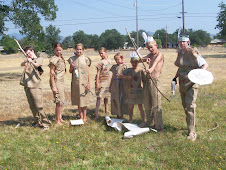

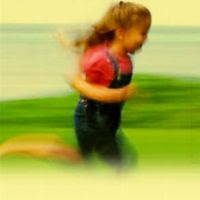
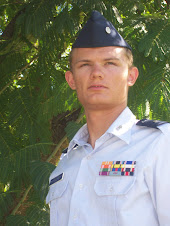
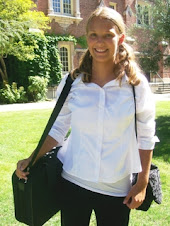
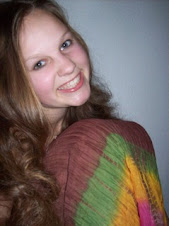

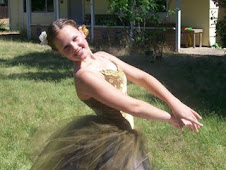
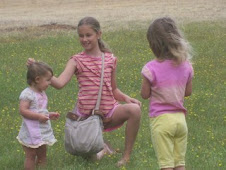
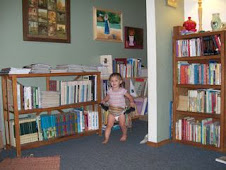
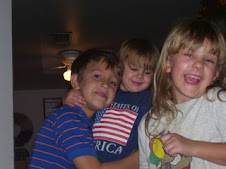
No comments:
Post a Comment